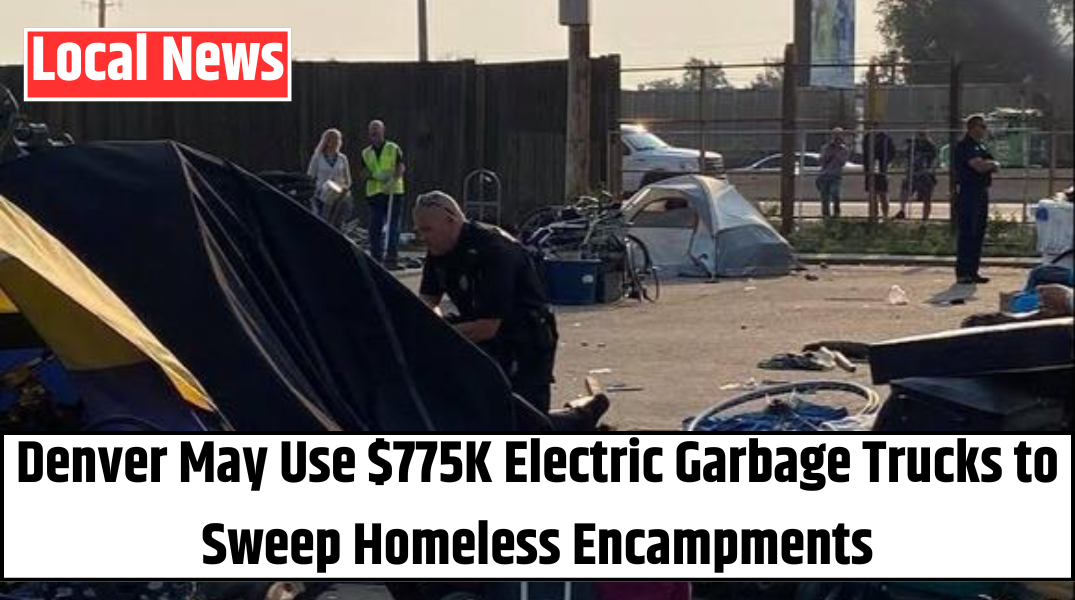In a move that merges environmental policy with the city’s controversial homelessness response, the Denver City Council’s Land Use, Transportation and Infrastructure Committee is set to vote Wednesday on whether to approve a $775,410 purchase of two electric garbage trucks. The new vehicles are intended for use in cleaning up homeless encampments, part of a larger initiative led by Mayor Mike Johnston.
According to city documents, the two rear-loader electric trucks will replace 12-year-old diesel models currently used in encampment cleanups. While officials frame the purchase as a dual win for sustainability and public health, critics argue the investment reflects misplaced priorities.
Climate Goals Meet Controversial Policy
City staff noted in a memo that the new electric vehicles are part of Denver’s push toward reducing emissions and modernizing its fleet. However, their deployment for encampment sweeps ties them directly to Mayor Johnston’s ramped-up enforcement of Denver’s urban camping ban, which has been a flashpoint for local activists and unhoused residents.
Mayor Johnston has made the sweeps central to his broader housing strategy. In his view, clearing encampments and offering housing solutions must happen in tandem. In less than six months, the city claims to have moved more than 1,100 individuals indoors and permanently shut down those camp locations.
Still, opponents point out that many displaced individuals simply relocate, and say the practice creates a cycle of trauma without addressing root causes.
Also Read – Advocates Raise Concerns Over Senior Housing Crisis: “Nobody Wants 80-Year-Olds on the Street”
Advocacy Group: Funds Better Spent Elsewhere
Housekeys Action Network Denver (HAND), a vocal advocate for the homeless, has repeatedly criticized the city’s approach. The group argues that millions have been spent on temporary cleanups with little long-term effect, while the underlying issue—lack of affordable housing—remains unresolved.
“HAND has long denounced the city’s encampment sweeps as performative and harmful,” said a recent statement from the group. “This kind of spending doesn’t help people off the streets; it just hides them temporarily, and usually in worse conditions.”
The group also took issue with Johnston’s 2023 veto of a proposed measure that would have limited sweeps during sub-freezing temperatures. “He effectively chose optics over safety,” the organization declared. “With this action, the administration showed it’s more focused on making homelessness invisible than making it solvable.”
A National Backdrop of Legal Change
Denver’s aggressive cleanup approach was bolstered by a recent U.S. Supreme Court ruling that gave cities more flexibility in enforcing camping bans, rejecting claims that the sweeps constituted cruel and unusual punishment. Legal experts believe the ruling will spur similar policies in other major urban centers grappling with visible homelessness.
What Comes Next?
If approved by the committee, the garbage truck purchase will move on to the full City Council for a final vote. The trucks—though environmentally progressive—remain entangled in one of Denver’s most divisive policy debates.
Meanwhile, critics continue to ask: Would that $775,000 be better used to house people instead of removing their belongings?
As the city navigates the balance between environmental innovation and social justice, Denver’s residents and leaders are being forced to grapple with how—and where—resources should be used in the fight against homelessness.

